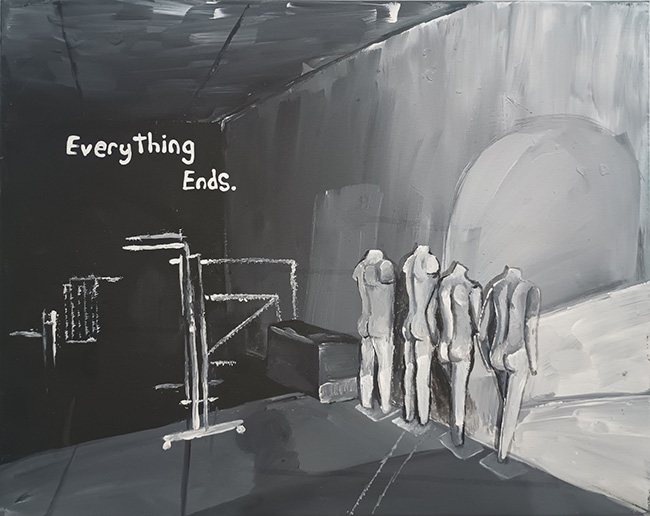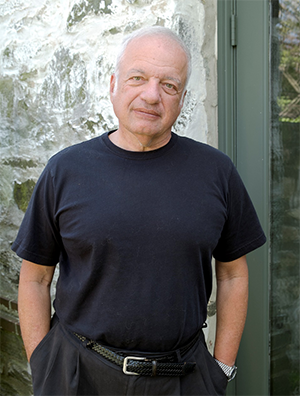Everything Ends

Tina Edgley is a self-taught artist from Florida's Heartland. She's loved creating art for as long as she can remember but recently has taken a special interest in painting. The work is meant to spotlight mental health through the lens of personal experience. The artist has taken inspiration from niche online art movements such as the liminal space movement and Weirdcore.
The Long and the Short of it
by Michael Salcman
What happened to all those unknowns who came for autopsy in Boston? Did they melt away like tallow or fade like daisies? Some began as nameless neighbors from the South End, black alcoholics and elderly Jews who escaped the plans once made for them in Poland and Germany, and a rarified few whose veins drained Cherokee or Wampanoag blood. They gave us their hearts and lungs doubly soaked in poisons, hot lead, alcohol and formaldehyde, and we took their brains, looking in the eyes for a reflection of our own lonely selves. Some students hovered over their bodies like white-clad angels, our first patients wrapped in the homely dress of the streets. Most were lost to family and friends, known as unknowns, their final gifts marked with an X. Out of prison and Army in spiritual bankruptcy they had lived like strangers among us. The patient who breathes more often comes back in dreams, those suffering pain and trouble may yet escape the morgue. At the sad end of an accident with plenty enough to drink not many got better. You can read it in a cold smile or frown out of shame or fatigue, leaving the clinic more out of sorrow or lack of money, after an incident fails to heal. It’s life when a single child of decades may return to do a week’s laundry or a bad breakup at thirty sends them home for good. Others may need forgiveness, an answer to life’s riddles or the smell of home cooking. At sixty they enter the hospital in want of something more than a loan—even the best mind searching from its start may discover a trunkful of old injury, memory covered by bruises and loaded in satchels of fear. And a parent-physician knows nothing much has changed.

Author's Bio
Michael Salcman is a former neurosurgery chairman, University of Maryland and president of The Contemporary Museum, a child of the Holocaust and a survivor of polio. Author of six medical books, seven poetry books and 200 scientific papers. His potery can be found inBarrow Street, Blue Unicorn, Harvard Review, Hopkins Review, Hudson Review, New Letters, Notre Dame Review, RaritanandSmartish Pace.Books includeThe Clock Made of Confetti (nominee The Poets' Prize),The Enemy of Good is Better, Poetry in Medicine,classic and contemporary poems on medicine,A Prague Spring(Sinclair Poetry Prize winner),Shades & Graces(winner Daniel Hoffman Legacy Book Prize),Necessary Speech: New & Selected PoemsandCrossing the Tape (2024).